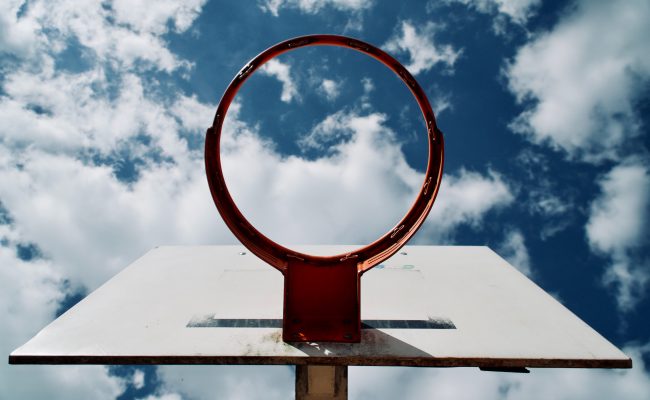Established in 2007, the Overland Judith Wright Poetry Prize for new and emerging poets is supported by the Malcolm Robertson Foundation. To qualify, entrants must have no more than one collection of poems published under their own name. This year, the major prize is $6000, and second and third prize is $2000 and $1000 respectively. All three poets will be published in the first print issue of Overland in 2020.
In one of the most successful years in the history of the prize, we received over 750 entries from poets all around the world. We’d like to thank all the entrants for their brave, disruptive and original work, and our 2019 judges, Ellen van Neerven, Michael Farrell and Toby Fitch, for their hard work and dedication to the decision-making process.
After careful consideration, the judges have selected nine outstanding poems to form this year’s Judith Wright Poetry Prize shortlist.
Congratulations to the following poets:
 Grace Yee
Grace Yee
‘Chinny chin chin’
‘Chinny chin chin’ is about border security, exclusion and perpetual ‘otherness’ in white settler Australia.
Grace Yee is currently a Creative Fellow at the State Library of Victoria. She teaches in the writing and literature programs at Deakin University and the University of Melbourne. Her poetry has most recently appeared in Southerly, Stilts, Rabbit, Overland and Meanjin.
 Alan Fyfe
Alan Fyfe
‘Eulogy for Hasan’
‘Eulogy for Hasan’ was written during a year studying the genre of prose poetry and it is composed for the remembrance of grief, for grief’s return years after its trigger, and for a Kurdish man who was close as a father to me.
Alan Fyfe is a writer of poetry, prose, journalism, and music. He won the Karl Popper Philosophy award in 2008 and his first novel, Floaters, was shortlisted for the T.A.G Hungerford Award in 2018. He lives and works on the unceded country of the Wajuk Nation, in Perth, Western Australia.
 Luke Patterson
Luke Patterson
‘Kurnell’
‘Kurnell’ is a condensation of memory and history, of time and space, and the places that make us.
Luke Patterson is a Gamilaroi poet and folklorist living on Gadigal lands. He is interested in the ways bioregional identities and consciousness are expressed through localised and vernacular forms. Luke’s research and creative pursuits are grounded in his extensive work with Aboriginal and other community-based organisations across Australia.
 Rose Hartley
Rose Hartley
‘Love, surveillance, cross-infection’
‘Love, surveillance, cross-infection’ is about swiping right on someone with a chronic illness.
Rose Hartley’s debut novel Maggie’s Going Nowhere was released in January 2020 by Penguin Random House. She graduated from the Clarion Writers’ Workshop in San Diego and works for a non-profit organisation. She lives in Adelaide.
 Gareth Morgan
Gareth Morgan
‘Government steals my rain’
‘Government steals my rain’ takes place in a seaside town containing boats, violence, sugar, hard-work and poetry.
Gareth Morgan is a poet and co director of sick leave reading series and journal. His poems have been published in Cordite, Rabbit, Australian Poetry and other places.
 Dan Hogan
Dan Hogan
‘No alarms’
‘No alarms’ is a poem about going to work under capitalism, the pulverisation of ‘selfhood’ by neoliberal hammers, and being visited by the ghosts of lost futures while chucking a sickie.
Dan Hogan is a writer and public primary school teacher from San Remo currently working on Darug Country. They also run DIY literary organisation Subbed In.
 Lou Garcia-Dolnik
Lou Garcia-Dolnik
‘No language for white man’
‘No language for white man’ contemplates how peoples, their lands and languages, in their essence resist whiteness.
Lou Garcia-Dolnik is a mixed-race Filipinx writer, editor and harpist working on unceded Gadigal Land. A poetry editor with Voiceworks and alumnus of the Banff’s Centre’s Emerging Writers Intensive, they were recently awarded third place in PRISM International’s Pacific Spirit Poetry Prize
 Naomi Cammayo
Naomi Cammayo
‘So Long to the Tropics’
‘So Long to the Tropics’ picks apart the darkness of anxiety and the weight of loneliness that hangs over the persona’s immigrant experience.
Naomi Cammayo is a PhD student at the University of Sydney. She is studying the work of women poet-activists from her native Philippines.
 Ursula Robinson-Shaw
Ursula Robinson-Shaw
‘Felicity Conditions’
In ‘Felicity Conditions’, dead fish are obstacles, sneakers are future relics, and desire is bad for itself.
Ursula Robinson-Shaw is a writer from Aotearoa, living in Melbourne. She is a PhD candidate at the University of Melbourne and co-director of Sick Leave. Her work has appeared in Overland, Cordite, Peach Mag, The Spinoff, and elsewhere. Her chapbook ‘NOONDAY’ was published by Puncher & Wattmann in 2019.
Congratulations again to these exciting new writers. Final results will be announced at Overland soon!
Image: Quentin Ferrer/Unsplash



